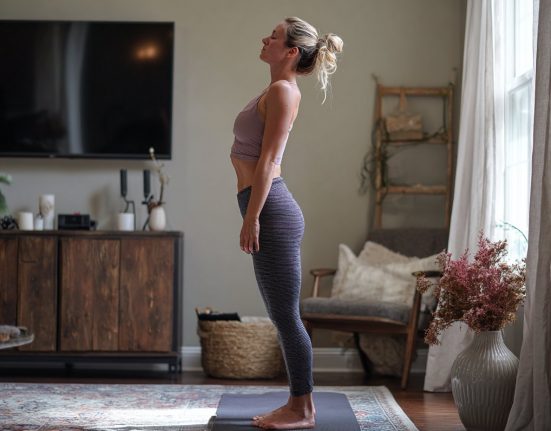Feeling overwhelmed? Psychic counsellor suggests five simple daily meditation habits. These brief practices help calm your mind and return you to yourself faster. They are designed to be easy to incorporate into your routine. Try them for two weeks and notice the difference in your emotional strength. This is about building resilience.
Some days, your mind feels like a crowded railway platform with thoughts rushing in, opinions pushing, anxieties jostling and your inner critic waving a bright red flag saying, “Hey, remember that one thing you forgot eight years ago?” You cannot control every “train” of thought but you can choose your bench, the quiet spot inside you that stays stable no matter how loud the world gets.
In an interview with the Times of India, Dr Madhu Kotiya, psychic counsellor and spiritual healer, shared that the secret lies in tiny daily meditation rituals that steady the mind against anxiety, burnout and emotional overload. On the mornings your mind feels like a railway station at rush hour with thoughts arriving, departing and occasionally pushing each other off the platform, Dr Kotiya, stressed upon “finding your bench and learning how to breathe through the noise.”
These five meditation habits, she said, are tiny daily rituals, not personality makeovers and each one helps you return to yourself a little faster. She suggested to try them as tiny daily rituals, not big projects.
The 3–3–3 breath (2 minutes, anywhere)
Inhale for 3, hold for 3, exhale for 3 — six rounds. No drama, no special setup. Within a minute your shoulders drop, the jaw unclenches and the nervous system hears, “You’re safe.” It’s my quick reset before difficult calls and after news doom-scrolling.
Feeling calmer already? Try it before stressful calls, after doom-scrolling, or anytime your shoulders mysteriously migrate up to your ears. A 2017 study published in Frontiers in Psychology found that slow, regulated breathing directly tones the vagus nerve, reducing anxiety and improving emotional regulation. Another 2020 Stanford study showed that cyclic sighing (longer exhalations) instantly lowers stress markers.
This breath is your portable panic button but in reverse. It switches you off, not on.
Body scan with “name and normalise” (5–7 minutes)
Close your eyes and travel from crown to toes. Wherever you meet tension, quietly name it: “tightness,” “worry,” “heat.” Then add, “This is present, and it will pass.” Naming gives feelings edges; normalisation stops the spiral of, “Why am I like this?” You’re not broken, you’re noticing.When you name a feeling, you give it edges. When you normalise it, you stop fighting it. The mind doesn’t need fixing, it needs witnessing and science agrees. A 2007 UCLA MRI study showed that affect labelling (naming feelings) reduces activity in the amygdala, the brain’s fear center, and increases rational processing.It means that naming feelings makes them less overwhelming. Try this when you are about to overthink a one-word text (‘k’ should not ruin your day).
Boundary bubble (5 minutes, morning/bedtime)
Visualise a soft, luminous sphere around you — permeable to love, firm with negativity. On each exhale, see it brighten. Whisper, “I can care without carrying.” This one is gold for empaths and healers; it keeps you kind without soaking up everyone else’s storm.A 2008 Research from the University of Wisconsin shows that brief compassion-based visualisations enhance emotional boundaries and reduce empathic burnout. Even athletes use visualisation to regulate stress response. Boundaries are emotional hygiene.
Trataka — Candle gaze (7 minutes, evening)
Place a candle at eye level. Gaze at the flame until the eyes want to close. Then see the after-image between the brows. Repeat a few cycles. It’s like ironing the mind — creases of distraction smooth out and the nervous system shifts from jittery to centered.Your system shifts from scattered to centered in minutes. A 2014 study in the Journal of Ayurveda and Integrative Medicine found Trataka improves concentration, reduces anxiety and enhances parasympathetic activity (your rest-and-digest mode). It is perfect for nights when your thoughts won’t stop rehearsing imaginary arguments.
Compassion pulse (4 minutes, after stress)
Hand on heart. Inhale: “May I be safe.” Exhale: “May I be at ease.” After a couple of minutes, extend it outward: “May they be safe at ease.” This softens self-criticism and prevents that burnt, brittle feeling that follows tough interactions.
Compassion is not weakness, it is the energy that keeps you from hardening. A 2018 Harvard research on self-compassion meditation showed major reductions in stress, rumination and emotional fatigue within two weeks. Try this after awkward meetings, family drama, or when your brain starts replaying that embarrassing thing you said in 2020.
How to make it stick (realistically)
Dr Kotiya suggests pairing the practices with everyday routines:
- Do the 3–3–3 breath during logins.
- Body scan before lunch.
- Boundary bubble after brushing your teeth.
- Candle gaze before sleep.
- Compassion pulse after any draining conversation.
Missed a day? Dr Kotiya advised, “Don’t restart — continue. Consistency grows from gentle returns, not punishment.
Emotional strength isn’t a hard shell; it’s flexible roots. Practice these five for two weeks and watch what changes first: not the world but the speed at which you come back to yourself. That’s resilience — quiet, repeatable, and entirely yours.”
Track one small moment daily, “One calmer moment today was…” That’s your progress report. After two weeks, don’t look for dramatic life changes. Meditation doesn’t change the world, it changes the speed at which you return to yourself and that is emotional strength. Not loud. Not forced. Just steady, flexible and entirely yours.








